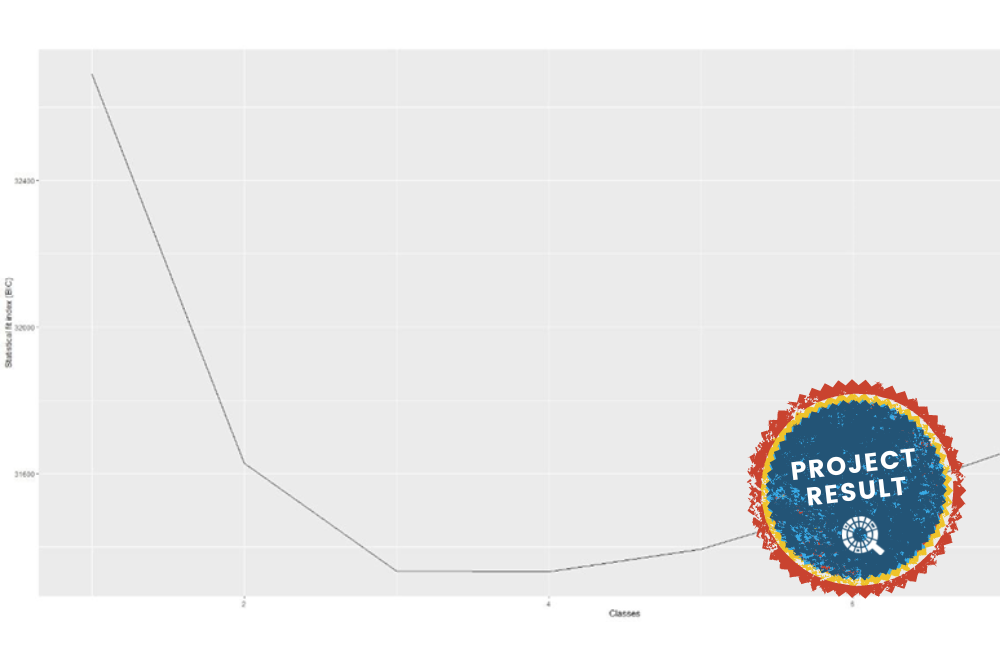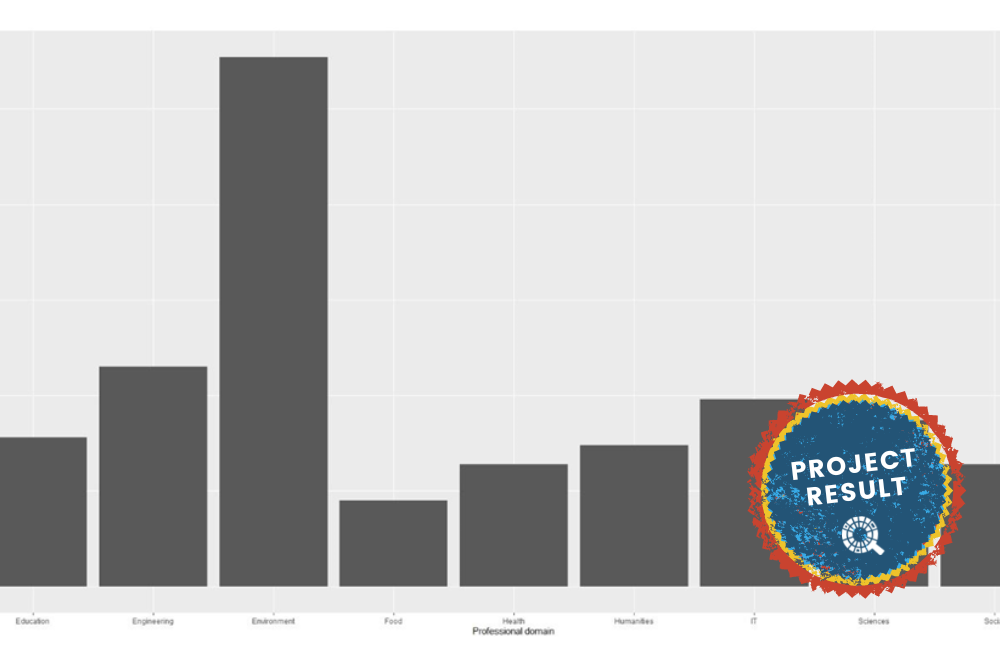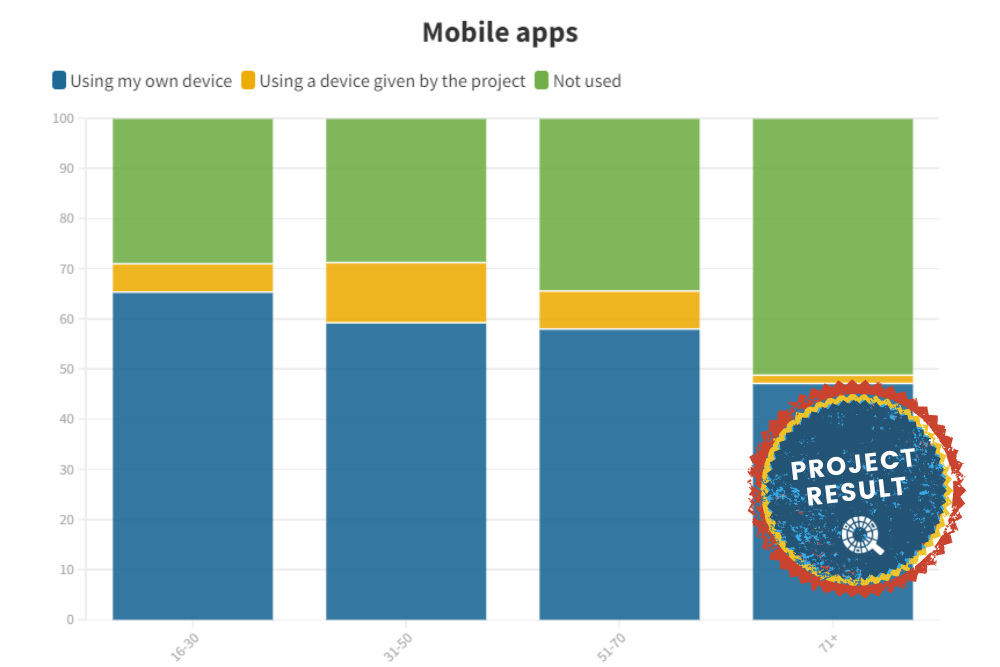Volunteers in citizen science (CS) have different kinds of motivations for participation, ranging from e.g. topic interest, supporting science to personal recognition. Information regarding the existence and characteristics of motivation profile groups of volunteers remains unclear.
Latent class analysis (LCA) indicates that CS volunteers can be divided into four distinct motivation groups of different sizes.
While three motivation profile groups share idealistic motivations like topic interest or science contribution, one motivation profile group focuses on personal benefits.
Introduction
Since CS thrives on voluntary participation, it is important to consider the motivations of its volunteers. Motivations can be a factor in sustaining volunteers’ participation within a project, (Clary & Snyder, 1999; West & Pateman, 2016). Previous studies have examined the various motivations of volunteers ranging from idealistic values like supporting science or engaging in a topic to practical outcomes like personal enjoyment, social connection or career improvement (Eveleigh et al., 2013; Geoghegan et al., 2016).
Volunteers can, however, possess one or more motivations that may coincide or diverge from others (West & Pateman, 2016). It may be difficult for project organisers to identify the relevant motivations for their project. According to Howard et al. (2016), it is possible to consolidate co-occurring motivations as motivational profile groups. Based on our CS Track survey data (https://zenodo.org/record/5026192#.Yud6XXZByUm), we investigate the question whether and which generalisable motivation profile groups exist for volunteers in CS.
We used latent class analysis (LCA) to examine data from the CS Track survey (Paajanen et al., 2021). LCA detects similar answer patterns in individuals and draws statistical conclusions regarding which individuals with similar attributes can be grouped together (Weller et al., 2020). Since LCA alone does not determine the ideal number of groups, the statistical measure of BIC (Bayesian information criterion) was used.

Figure 1. One model per number of classes has been calculated. The lower the index BIC (Bayesian Information Criterion), the better the class distribution fits the data.

Figure 2. Each row of bars resembles a motivation profile group of a 4-class model. The graph shows the relative frequencies of answers. Class 1 represents the motivational profile group of “idealistic profiteers”, Class 2 represents the motivational profile group of “idealistic aspirants”, Class 3 represents the motivational profile group of “topic investigators”, and Class 4 represents the motivational profile group of “instrumental beneficiaries”.

Figure 3. This bar chart shows the same information as the former one, but here you can compare specific motivations between profile groups more easily. Here, each box shows how important participants of the four profile groups rated a specific motivator.
Results
The line chart below (Figure 1) shows the fit index for each LCA model – the first only includes one motivation profile group, the second model two groups, up to the eighth model with eight profile groups. The smaller the index, the better a model describes the data. Since four classes offer more detailed insights, we can propose that four general motivation profiles exist among CS volunteers.
Class 1 of volunteers (representing about 41 % of population in the survey) represents the motivation profile group of “idealistic profiteers”. These volunteers want to engage in relevant topics as well as support science and project values. At the same time, personal outcomes relating to personal development, e.g. learning or social connections are important. Enjoyment is also a motivator for these volunteers.
Class 2 of volunteers (representing about 34 % of population in the survey) represents the motivation profile group of “idealistic aspirants”. In general, their motivations do not differ too much from the group of idealistic profiteers (Class 1). Topic interest is almost equally important in Class 1 and Class 2, whereas other motivators are less important for members of Class 2 than members of Class 1.
Class 3 of volunteers (representing 23 % of population in the survey) represents the motivation profile group of “topic investigators”. These volunteers are motivated by their Interest in specific topics and is even more pronounced than among Class 2 as other motivations are less relevant.
Class 4 (~ 2 % of population) indicates a small group of “instrumental beneficiaries”. In general, all displayed motivators are not too important for members of Class 4. Nevertheless, compared to all the other classes, those volunteers show a higher interest in rewards and career benefits.
Implications
Our results suggest that most volunteers in CS are mainly driven by topic interest, no matter what other motivations they may simultaneously possess. Even though the differences between Class 1, Class 2 and Class 3 are minor, some motivational profile groups might be affected more than others regarding e.g. a lack of opportunities for personal development. Also, external, material-oriented motivations such as rewards define a small but distinct profile group. Future research may want to examine whether these volunteers participate in CS differently through exploring e.g. the roles that they adopt within a project.
References
Clary, E. G., & Snyder, M. (1999). The motivations to volunteer: Theoretical and practical considerations. Current Directions in Psychological Science, 8(5), 156–159. http://www.jstor.org/stable/20182591
Eveleigh, A., Jennett, C., Lynn, S., & Cox, A. (2013). ‘I want to be a Captain! I want to be a Captain!’: Gamification in the old weather citizen science project. Gamification Proceedings, 1(13), 79-82.
Geoghegan, H., Dyke, A., Pateman, R., West, S., & Everett, G. (2016). Understanding motivations for citizen science. Final report on behalf of UKEOF, University of Reading, Stockholm Environment Institute (University of York) and University of the West of England. https://www.ukeof.org.uk/resources/citizen-science-resources/MotivationsforCSREPORTFINALMay2016.pdf
Howard, J., Gagné, M., Morin, A. J., & Van den Broeck, A. (2016). Motivation profiles at work: A self-determination theory approach. Journal of Vocational Behavior, 95, 74-89. DOI: https://doi.org/10.1016/j.jvb.2016.07.004
Paajanen, S., Lampi, E., Lämsä, J., & Hämäläinen, R. (2021). White paper: Themes, objectives and participants of CS activities. CS Track. DOI: https://zenodo.org/record/5026192#.Yud6XXZByUm
Weller, B. E., Bowen, N. K., & Faubert, S. J. (2020). Latent class analysis: A guide to best practice. Journal of Black Psychology, 46(4), 287–311. DOI: https://doi.org/10.1177/0095798420930932
West, S. & Pateman, R. (2016). Recruiting and retaining participants in citizen science: What can be learned from the volunteering literature? Citizen Science: Theory and Practice, 1(2): 15, pp. 1–10, DOI: https://doi.org/10.5334/cstp.8














